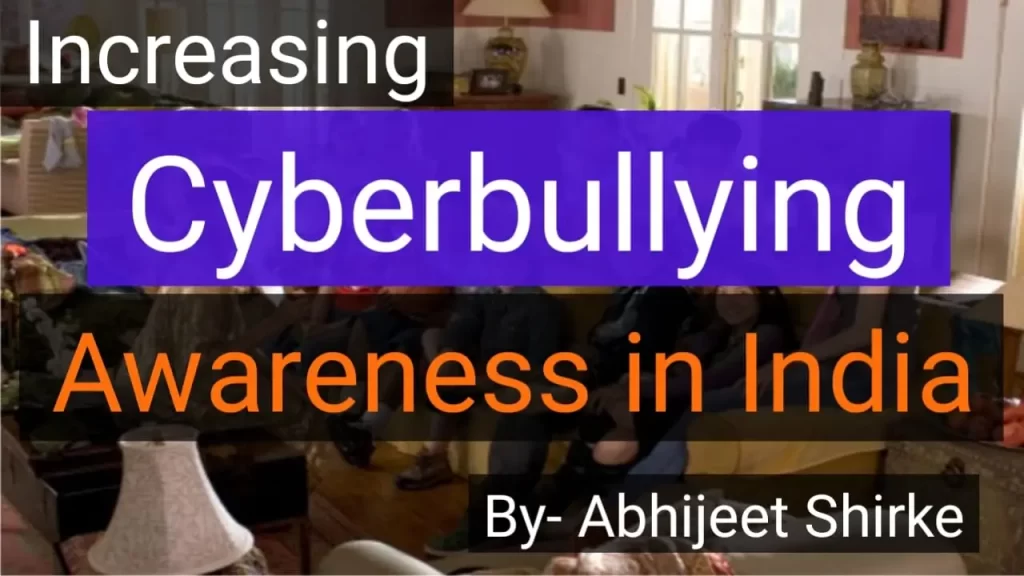
Cyberbullying, a digital menace that transcends borders and affects millions worldwide, has become a pressing concern in India. The rise of digital technology and social media platforms has brought with it new opportunities for communication, but it has also opened the door to Cyberbullying, a form of harassment and abuse that occurs online. To combat this growing issue, awareness campaigns on Cyberbullying have emerged as essential tools for educating the public, empowering victims, and fostering a safer digital environment. In this essay, we will explore the importance and impact of awareness campaigns on Cyberbullying in India.
The Prevalence of Cyberbullying in India
Cyberbullying encompasses a range of harmful online behaviors, including harassment, humiliation, threats, and spreading false information. In India, where the internet and social media have become integral to daily life, the prevalence of Cyberbullying is alarming. A study conducted by the National Council of Educational Research and Training (NCERT) in 2019 found that nearly 35% of Indian students had experienced Cyberbullying at some point. These incidents can lead to severe emotional distress, depression, and even suicide, making it imperative to address the issue proactively.
Importance of Cyberbullying Awareness Campaigns
Awareness campaigns play a pivotal role in addressing Cyberbullying in India for several reasons.
- Education: Awareness campaigns educate individuals about what constitutes Cyberbullying, its consequences, and the legal repercussions. Many people may not be aware that their online actions can be considered Cyberbullying, so these campaigns help clarify these boundaries.
- Empowerment: Victims often suffer in silence due to fear, shame, or confusion. Awareness campaigns provide them with the knowledge and resources to seek help, report incidents, and protect themselves.
- Encouraging Reporting: Many instances of Cyberbullying go unreported. Awareness campaigns aim to reduce the stigma associated with being a victim and encourage individuals to report Cyberbullying incidents to the appropriate authorities or platforms.
- Social Change: By raising awareness about Cyberbullying, these campaigns promote a cultural shift towards a more empathetic and responsible online community. They challenge the idea that online behavior is somehow exempt from the rules of decency and respect that apply in the physical world.
Impact of Awareness Campaigns
Awareness campaigns on Cyberbullying have already begun to make a significant impact in India:
- Policy Changes: The government and various state authorities have been prompted to draft and enforce stringent Cyberbullying laws and policies in response to growing public awareness.
- Support Networks: Campaigns have led to the development of support networks and helplines for Cyberbullying victims, providing them with emotional support and guidance.
- School Initiatives: Schools and educational institutions have introduced anti-Cyberbullying programs, integrating awareness campaigns into their curricula to educate students about responsible online behavior.
- Online Platforms: Social media platforms and websites have become more proactive in addressing Cyberbullying by implementing reporting mechanisms, content moderation, and user education initiatives.
- Community Engagement: Awareness campaigns encourage communities, parents, teachers, and students to engage in open conversations about Cyberbullying, promoting mutual understanding and empathy.
Challenges and Future Directions
While awareness campaigns have made significant strides, challenges remain. The rapid evolution of technology and social media platforms makes it challenging to keep pace with emerging Cyberbullying tactics. Furthermore, reaching remote or underserved areas of India with these campaigns can be difficult.
To address these challenges, future awareness campaigns should:
- Emphasize Digital Literacy: Campaigns should focus on digital literacy, teaching individuals to navigate the online world safely, recognize potential risks, and use digital platforms responsibly.
- Targeted Outreach: Tailored campaigns should be developed for specific demographics, including children, teenagers, parents, and educators, to address their unique needs and concerns.
- Collaborative Efforts: Partnerships between government bodies, NGOs, tech companies, and educational institutions should be encouraged to ensure a coordinated and comprehensive approach to tackling Cyberbullying.
Awareness campaigns on Cyberbullying in India have made remarkable progress in raising awareness, empowering victims, and encouraging responsible online behavior. However, as technology continues to evolve, these campaigns must evolve as well to effectively combat this digital menace. By educating individuals, promoting empathy, and fostering a culture of digital responsibility, we can work together to create a safer and more inclusive online environment for all Indians.